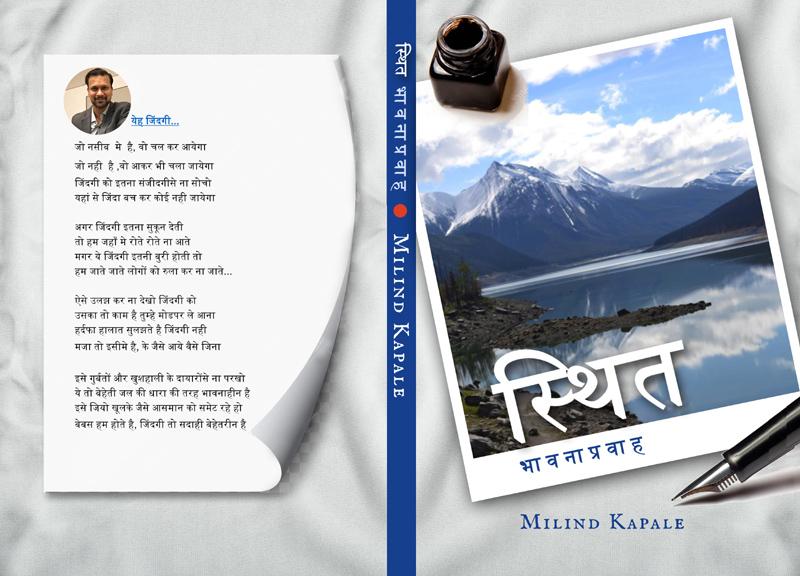 Image
Image
Book review: Rediscover the charm of poetry in 'Stith - Bhavna Pravaha' by Milind Kapale
'Stith: Bhavna Pravaha', a collection of Hindi poems by Milind Kapale, has proved again that poetry, the earliest genre of literature, is a magical amalgamation of words, with the power to create a long-lasting impact on the readers mind.
With the twist of a few words, a poet can express deep and heart-warming thoughts.
Milind Kapale, in his collection of poems 'Stith: Bhavna Pravaha', has expressed his day to day thoughts, about love, life and more.
We promise that you will have a different experience altogether.
Right from the time we wake up, till the time we sleep, we are exposed to multifarious experiences which touch our soul in different ways.
Also,, all of us experience a lot of things in our lives which we wish to express and there is no other medium that poetry for expressing these.
The poet has used simple language to connect with the readers but the inner meaning goes deep.
Many times we face various events in our lives but find it difficult to express the same in words.
Milind Kapale has taken those small yet impactful events and has successfully expressed them in words.
The lengths of the poems are short so it will not take much time to complete them but after completion, you will have a wonderful feeling deep inside your heart.
You may be able to relate with many of them since these emotions are very common to most human beings, and when things become relatable, we enjoy more and remember them forever.
You can expect such an experience from this wonderful book.
The language can be one barrier for many people since all cannot read Hindi, however, if anyone reads them to you, you can feel the deep essence because the language of the soul is supposed to be one, isn’t it?
The readers are bound to enjoy each and every poem because each has a different theme along with a different essence.
(Reviewed by Sayantani Sengupta)
Top Headlines
-
Literary
Culturist Sundeep Bhutoria unveils anthology When Gods Don't Matter at Jaipur LitFest 2026
January 17, 2026
-
Literary
Sona College of Technology hosts Think Salem 2025: To spur startup opportunity from Tier-2 Cities
December 23, 2025
-
Literary
A Defiant Voice Remembered: Jyotsna Mohan at The Write Circle, Dubai
September 27, 2025
-
Literary
Feminist pioneer Abala Bose was both a subscriber and critique of colonial ideas: Author Saptarshi Mallick
August 26, 2025
-
Literary
The Sona Story: The Textile to Tech Journey of Chettiar Industrialist C. Valliappa
April 22, 2025
-
Literary
The Sona Story celebrates life, legacy of C. Valliappa
April 05, 2025
-
Literary
Acclaimed Author Soma Bose continues to inspire with her powerful storytelling
March 07, 2025
-
Literary
Terrorists behind Nagrota attack had a jihadi sentiment: 'Nagrota Under Siege' author Bhaavna Arora
February 26, 2025
-
Literary
I am a lifelong Felu-da fan, says Arindam Basu unveiling truth-seeker Prithviraj's intriguing world in 'The Calcutta Covenant'
February 18, 2025
-
Literary
Women decide Indian politics now: Veteran journalist Rajdeep Sardesai at Kitaab talk in Kolkata
January 12, 2025
